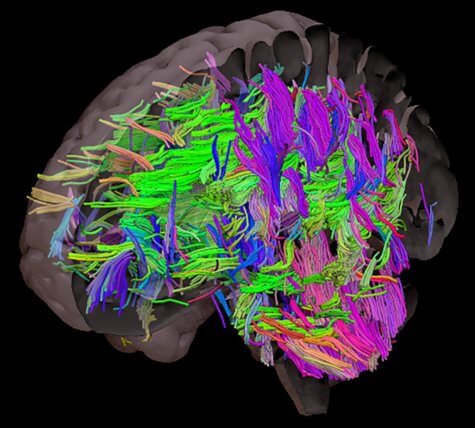SHEFFIELD, United Kingdom — Keeping the brain healthy and active is a big part of preventing Alzheimer’s disease. A new study finds keeping the body healthy and active may be just as important. Researchers from the University of Sheffield say being overweight can put another burden on brain health and may make the symptoms of Alzheimer’s even worse.
Alzheimer’s is the most common form of dementia, affecting millions of people worldwide. The neurological condition affects areas of the brain which control thought, memory, and language. The Centers for Disease Control and Prevention estimate that 14 million Americans will have the disease by 2060.
Watching your figure may protect your brain’s figure too
While the visible symptoms of dementia typically appear when a patient reaches their 60’s, the study finds an unhealthy lifestyle earlier on can increase a person’s chances of cognitive decline. Using multimodal neuroimaging, researchers revealed that obesity can make neural tissue more vulnerable to degeneration. They believe maintaining a healthy weight, especially in middle age, can preserve the brain’s structure later in life.
“More than 50 million people are thought to be living with Alzheimer’s disease and despite decades of ground breaking studies and a huge global research effort we still don’t have a cure for this cruel disease,” says lead study author Professor Annalena Venneri in a university release.
“Prevention plays such an important role in the fight against the disease. It is important to stress this study does not show that obesity causes Alzheimer’s, but what it does show is that being overweight is an additional burden on brain health and it may exacerbate the disease.”
“The diseases that cause dementia such as Alzheimer’s and vascular dementia lurk in the background for many years, so waiting until your 60s to lose weight is too late. We need to start thinking about brain health and preventing these diseases much earlier. Educating children and adolescents about the burden being overweight has on multi-morbidities including neurodegenerative diseases is vital,” the researcher from Sheffield’s Neuroscience Institute and NIHR Sheffield Biomedical Research Centre adds.
How does obesity impact the brain?

Researchers from University of Sheffield and the University of Eastern Finland studied the MRI brain scans of 172 people with varying degrees of brain health. Forty-seven participants had been diagnosed with mild Alzheimer’s disease by a doctor. Another 68 patients suffered from mild cognitive impairments and 57 participants still had healthy brain function.
Study authors examined each person’s brain using three computational techniques which look at the anatomy of the brain. The scans also reveal the rate of blood flow and the fibers within the brain.
The team then compared these brain images and measured the differences in the concentration of brain tissue. These tests helped to assess a patient’s grey matter volume, which breaks down during the onset of Alzheimer’s. In patients with mild dementia, the results reveal a connection between obesity and grey matter volume around the right temporoparietal junction. Study authors say this points to weight gain playing a role in the weakening of the brain’s integrity.
“Weight-loss is commonly one of the first symptoms in the early stages of Alzheimer’s disease as people forget to eat or begin to snack on easy-to-grab foods like biscuits or crisps, in place of more nutritional meals,” Dr. Matteo De Marco from the University of Sheffield’s Neuroscience Institute explains.
“We found that maintaining a healthy weight could help preserve brain structure in people who are already experiencing mild Alzheimer’s disease dementia. Unlike other diseases such as cardiovascular disease or diabetes, people don’t often think about the importance of nutrition in relation to neurological conditions, but these findings show it can help to preserve brain structure.”
The study appears in The Journal of Alzheimer’s Disease Reports.
